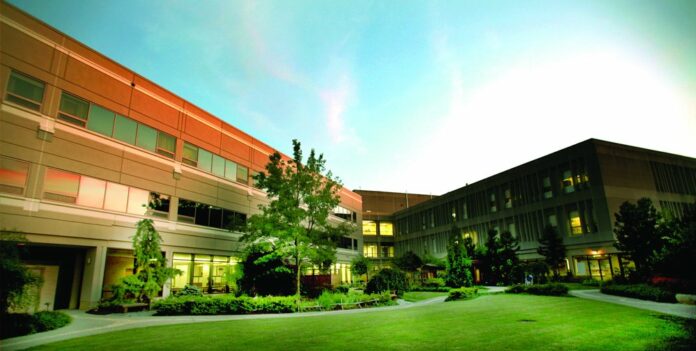Stroke is a devastating brain injury that, if not treated quickly, could result in permanent disability or death. It’s the fifth-leading cause of death for all Americans (fourth in Pennsylvania) and a leading cause of long-term disability.
St. Mary Medical Center is working to reverse those trends in Bucks County and beyond. The hospital recently added advanced surgical capabilities to its stroke program, enabling 24/7 capability to perform minimally invasive mechanical thrombectomy procedures. St. Mary joins a small group of Pennsylvania hospitals that offer mechanical thrombectomy. The addition of this treatment to the St. Mary Neuroscience Institute makes the program fully clinically capable in the region.
When a stroke occurs, it’s critical to call 9-1-1 and get to the nearest Primary Stroke Center. Typically, if diagnosed within the recommended window of time, the patient will receive a medication called tissue plasminogen activator (tPA) to dissolve a blood clot. Fortunately for the communities St. Mary services, more advanced options are available at the hospital. Depending on the clot location, time since stroke onset and duration of reduced blood flow in the brain, St. Mary neurosurgeons can perform mechanical thrombectomy procedures 24/7 to quickly and safely remove certain types of blood clots.
Also known as endovascular thrombectomy, a comprehensively trained vascular neurosurgeon inserts a small catheter through the upper thigh or wrist and guides it within the body to the blocked artery in the brain. Once there, the neurosurgeon can remove the clot. As a result, blood flow is restored faster, the patient recovers quicker and has a smaller chance of severe or permanent disability, or death.
“Mechanical thrombectomy treatment is a game-changer for stroke care,” said Mandy Binning, MD, medical director of the Stroke Program at the St. Mary Neuroscience Institute. “Our team of five comprehensive, dual-trained vascular neurosurgeons, the largest group in the region, were leaders in the development and initial implementation of these clot-retrieval procedures. We have saved countless lives that would otherwise have resulted in patients being placed in nursing homes — if they actually survived the initial stroke. St. Mary has made the investment in equipment, surgeons and a 24/7 support team to make this lifesaving treatment a reality.”
“The field of medicine is constantly changing, and hospitals and health systems must continue to evolve to best serve their communities,” said Michael Magro, DO, president of St. Mary Medical Center. “Having the teams and tools in place to surgically treat ischemic stroke demonstrates St. Mary’s and Trinity Health Mid-Atlantic’s commitment to offer the most-current therapies for a common and devastating condition. I’m proud to lead one of only a few hospitals in the five-county area to offer this advanced procedure. It gives us a competitive advantage and further builds out our comprehensive neuroscience program.”
Staffed by board-certified and fellowship-trained neurosurgeons, the St. Mary Neuroscience Institute is a full-service program that treats a wide range of conditions. Certified as a Joint Commission Primary Stroke Center and awarded the American Stroke Association’s Get With the Guidelines Gold Plus Performance Award for Stroke, St. Mary has enhanced its program with a hybrid OR and 24/7 Neurologic Intensive Care Unit. The stroke program will continue to evolve and work toward additional Joint Commission certifications as a Comprehensive Stroke and Thrombectomy Capable Center.
“Having a minimally invasive endovascular program is a key differentiator,” said Magro. “The St. Mary Neuroscience Institute will continue to build out its offerings and be a premier destination for stroke care far beyond the boundaries of Bucks County.”
For more information about the St. Mary Neuroscience Institute, or to take a stroke risk assessment, visit trinityhealthma.org/neurosciences.


